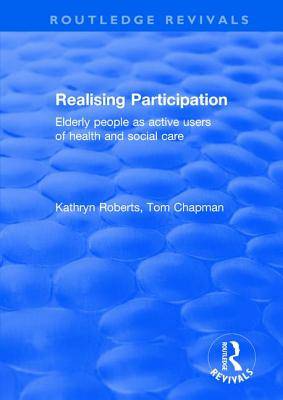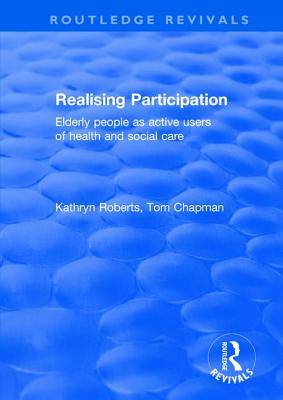
- Afhalen na 1 uur in een winkel met voorraad
- Gratis thuislevering in België vanaf € 30
- Ruim aanbod met 7 miljoen producten
- Afhalen na 1 uur in een winkel met voorraad
- Gratis thuislevering in België vanaf € 30
- Ruim aanbod met 7 miljoen producten
Zoeken
Realising Participation
Elderly People as Active Users of Health and Social Care
Kathryn Roberts, Tom Chapman
€ 104,45
+ 208 punten
Uitvoering
Omschrijving
This title was first published in 2001: During the last twenty years government rhetoric in the UK has increasingly advocated that statutory health and social care services should regard and treat recipients as 'consumers' in the same way as companies and organizations in the private sector. This involves a considerable cultural change on the part of both service providers and their clients, and this timely study explores the extent to which such a cultural change is actually taking place in British society. The utilization of welfare services by a sample of people aged 70 and above on discharge from inpatient care and in a short period afterwards is examined as a critical testbed for key components of consumerism, including participation, representation, access, choice, information and redress. The book explores not only the extent to which opportunities are being provided for users to play an active role in their care, but also their degree of willingness to assume such a role. By investigating the experiences of clients from a generation which might be considered relatively resistant to a more active participation in health and social care, the study offers an important insight into the extent to which a real social transformation is indeed taking place in the British welfare services.
Specificaties
Betrokkenen
- Auteur(s):
- Uitgeverij:
Inhoud
- Aantal bladzijden:
- 264
- Taal:
- Engels
- Reeks:
Eigenschappen
- Productcode (EAN):
- 9781138703131
- Verschijningsdatum:
- 14/09/2017
- Uitvoering:
- Hardcover
- Formaat:
- Genaaid
- Afmetingen:
- 154 mm x 217 mm
- Gewicht:
- 649 g

Alleen bij Standaard Boekhandel
+ 208 punten op je klantenkaart van Standaard Boekhandel
Beoordelingen
We publiceren alleen reviews die voldoen aan de voorwaarden voor reviews. Bekijk onze voorwaarden voor reviews.











